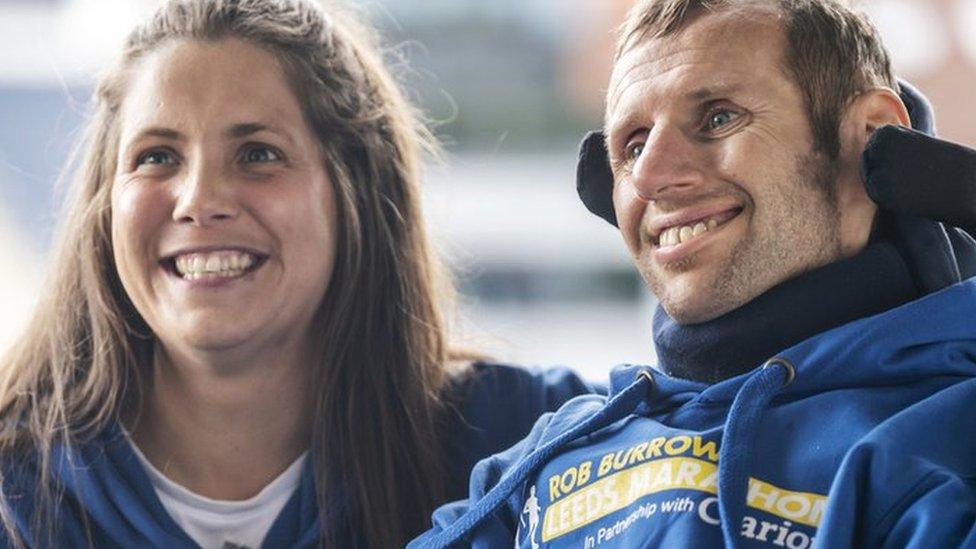Motor neurone disease: Sufferers describe wait to get diagnosed
- Published
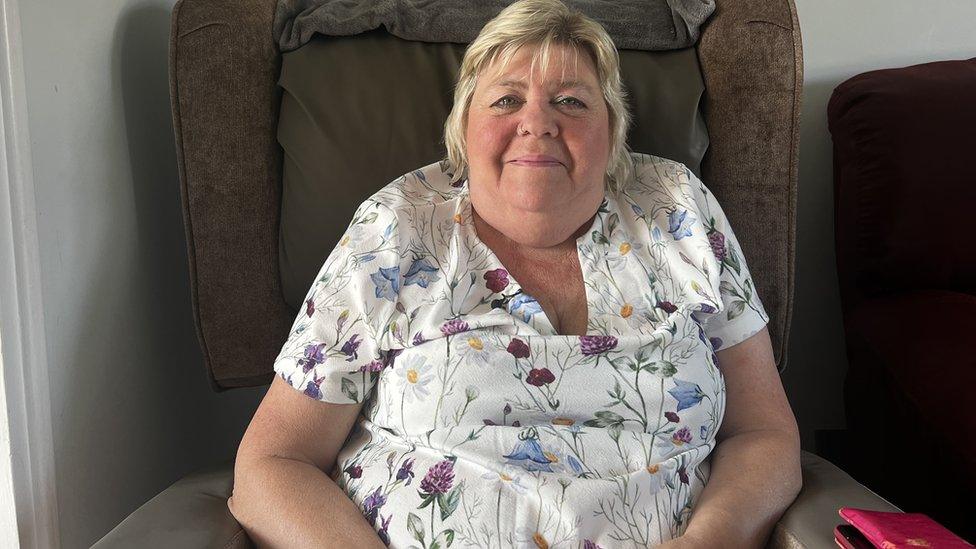
Tina Parker says it took two years for her to be diagnosed with MND
Motor neurone disease (MND) is a life-altering, debilitating and terminal condition that affects people's ability to move, talk and breathe.
Six people are diagnosed with it in the UK every day, mostly aged over 50, according to Brain Research UK.
But getting diagnosed can take time, with some people being seen by multiple specialists before it is confirmed.
Two sufferers have spoken to BBC South about their struggles accessing vital treatment and support.
Tina Parker, from Farnborough, Hampshire, was diagnosed with a rare form of the disease in 2021. She told the BBC it took two years before it was confirmed.
"It was like banging my head against a brick wall," she said.
"It went on for so long, I was falling, there was no-one to talk to. I knew something was wrong and I was having all sorts of tests - nerve testing, MRI scans, brain scans."
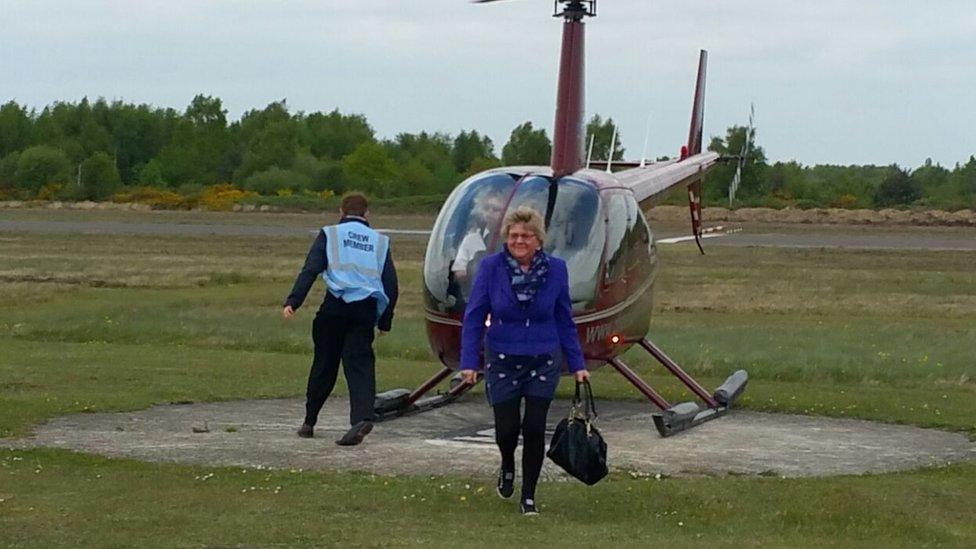
Ms Parker pictured before her diagnosis
Ms Parker, who was previously active, independent and a keen dancer, said she saw three medical professionals before finally seeing a neurologist who told her she had MND.
"It's like a grieving process," she said. "You feel like you've lost your body."
Following her diagnosis, Ms Parker now receives round the clock support, including modifications in her home such as external hand rails, remote controlled curtains and a lift to go upstairs.
But a diagnosis does not mean the same for everyone. Andy Vaughton, from Poole, Dorset, was told he had the most common type of MND, two years after his muscle wasting started.
He said medical professionals originally thought it was wrist problem.
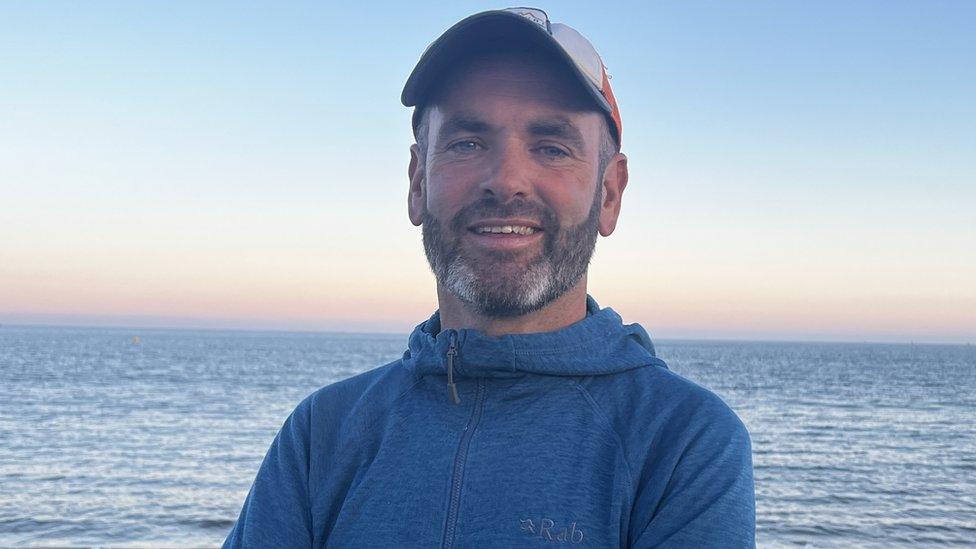
Andy Vaughton says it is important to "live in the moment"
While he is no longer able to work as an anaesthetist, he said he can still go about his life as normal and play rugby with his sons and even trek in the desert.
Describing how long his diagnosis took, Mr Vaughton said: "You have to wait for more wasting and weakness before you can actually fulfil the criteria for MND, that's why it does take time."
Like Ms Parker, he told the BBC he felt "overwhelming grief" over "losing your future".
He said: "That would always make me sad, whenever I thought ahead, the fact I might not be here, I might not see my kids grow up.
"But you can't think about it like that, you have to just live in the moment."
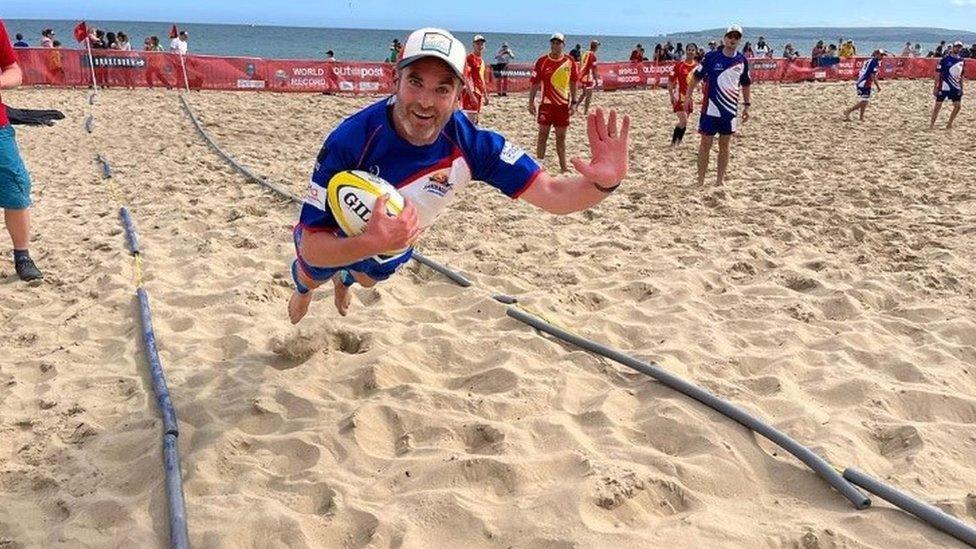
Mr Vaughton says he is still able to go about his life as normal
Mr Vaughton is taking part in a UK study looking at how MND impacts the brain, in the hope it will lead to earlier diagnosis in the future.
Sally Hughes, from the Motor Neurone Disease Association, said late diagnosis means "fundamentally people will not get access to the service and support they need to live their daily life and have quality of life".
She said the charity was working with medical professionals, particularly GPs, to make them aware of some of the early symptoms.
"It's very rare still for people in 'GP land' to see someone with motor neurone disease so we want to make them aware and spot those red flags that might suggest they need to refer on to a specialist who can diagnose MND."
Ms Hughes said while the medical community was still learning about the causes of MND, "we think it's a combination of genetics, environment and lifestyle factors that contribute but our researchers are discovering more and more".

Follow BBC South on Facebook, external, X, external, or Instagram, external. Send your story ideas to south.newsonline@bbc.co.uk.
- Published15 October 2023

- Published11 October 2023
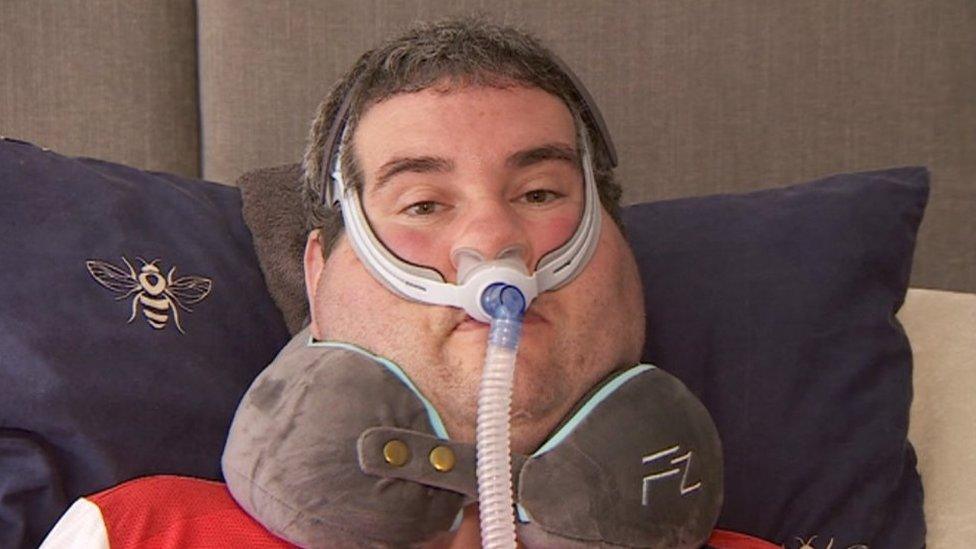
- Published6 October 2023
